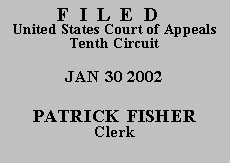

| UNITED STATES OF AMERICA, |
|
| v. | |
| MICHAEL SCOTT MORGAN, |
determination of this appeal. See Fed. R. App. P. 34(a)(2)(c). The case is therefore ordered submitted without oral argument.
Michael Scott Morgan was convicted of three counts of unlawful possession of a firearm after former conviction of a felony, 18 U.S.C. § 922(g)(1), two counts of giving false statements to a licensed firearms dealer, 18 U.S.C. § 922(a)(6), and three counts of possession of a firearm while subject to the terms of a judicial protective order, 18 U.S.C. § 922(g)(8). He was sentenced to 42 months' imprisonment, three years of supervised release, a fine of $1,000, and a monetary assessment of $100 per count. We exercise our jurisdiction under 28 U.S.C. § 1291 and affirm.
At trial and on the initial stages of appeal, Mr. Morgan was represented by counsel. During his appeal, however, Mr. Morgan fired his attorney and proceeded pro se. Upon receipt of Mr. Morgan's appellate brief, we determined Mr. Morgan should have counsel and appointed one to represent him. After counsel made several attempts to contact Mr. Morgan, Mr. Morgan finally responded on April 23, 2001 and identified four additional issues that are before us. Mr. Morgan did not file a separate pro se brief.
Counsel for defendant has filed a brief pursuant to Anders v. California, 386 U.S. 738 (1967), indicating his belief that the record contains no meritorious issues for appeal. Defense counsel has also filed a motion requesting leave to withdraw as counsel, stating his belief that the issues raised on appeal are frivolous. As required, a copy of counsel's Anders brief and motion to withdraw were provided to defendant, see id. at 744.
In his Anders brief, counsel related that defendant wished to raise several issues. The first two issues were raised in Mr. Morgan's initial pro se appellate brief: (1) whether he must abide by laws that are allegedly repugnant and unconstitutional; and (2) whether as a descendant of participants in the American Revolution that Mr. Morgan, as a "peacemaker," must suffer at the hands of those who have impugned his character. Aplt's Anders Br. at 15 (quoting pro se opening br. at 3). The next five issues were raised at the suggestion of Mr. Morgan after conferring with appointed counsel; they include: (3) ineffective assistance of counsel; (4) unfair enhancement of sentence; (5) malicious and selective prosecution; (6) Mr. Morgan lacked the mental capacity to understand the charges against him; and (7) his prosecution was pursuant to an illegal Bill of Attainder. Finally, counsel raised an insufficiency of the evidence claim, culling together various strands of Mr. Morgan's pro se filings. The record indicates that none of the above issues was raised before the district court.
Pursuant to our duty under Anders, 386 U.S. at 744, we have conducted an independent review of Mr. Morgan's conviction and sentence and we agree with counsel's conscientious review of the record and conclusion that the appeal is frivolous.
As to Mr Morgan's ineffective assistance of counsel claim, for which he provides no legal argument or record cites, we note that this "claim[] should be brought in collateral proceedings, not on direct appeal. Such claims brought on direct appeal are presumptively dismissible, and virtually all will be dismissed." United States v. Galloway, 56 F.3d 1239, 1240 (10th Cir. 1995) (en banc) (citing Beaulieu v. United States, 930 F.2d 805, 808 (10th Cir. 1991)). Our review of the record confirms that this is not one of those "rare instances" permitting consideration of ineffective assistance claims on direct appeal. Id. Therefore, we dismiss Mr. Morgan's ineffective assistance claims, while noting that this does not bar its assertion in a petition pursuant to 28 U.S.C. § 2255. See id. at 1241-42.
After a thorough review of the record, this court also agrees that Mr. Morgan's sufficiency-of-the-evidence claim is frivolous. In evaluating challenges to the sufficiency of evidence, this court applies the following standard: "[E]vidence both direct and circumstantial, together with reasonable inferences to be drawn therefrom, is sufficient if, when taken in the light most favorable to the government, a reasonable jury could find the defendant guilty beyond a reasonable doubt." United States v. Garcia- Emanuel, 14 F.3d 1469, 1472 (10th Cir. 1994) (quotations omitted). We will overturn a jury's finding only if no reasonable juror could have reached the disputed verdict. United States v. Carter, 130 F.3d 1432, 1440 (10th Cir. 1997). This purposefully high hurdle, faced by a party challenging a jury verdict, "reflects a deep respect for the fact-finding function of the jury." United States v. Evans, 42 F.3d 586, 589 (10th Cir. 1994) (quotation omitted).
There is evidence that Mr. Morgana convicted felon, according to an ATF determinationin fact purchased a rifle, a pistol, and ammunition for both, and that he intended to purchase a third firearm. After this purchase, a police officer stopped Mr. Morgan, who had a loaded shotgun in his possession in his truck, along with other devices. The testimony at trial showed that Mr. Morgan had been served with protective orders by officers who witnessed the same. Mr. Morgan also testified about his prior felony conviction and that he indeed pleaded guilty and possessed firearms. Without restating all of the evidence adduced at trial, we simply note that the evidence, and the reasonable inferences drawn therefrom, is more than sufficient to support Mr. Morgan's conviction.
As to the remaining challenges, we have reviewed the entire record, all of the briefs filed, and agree they are frivolous challenges. Therefore, we AFFIRM Mr. Morgan's conviction and GRANT counsel's request to withdraw.
Entered for the Court,
Robert H. Henry
Circuit Judge
*. This order and judgment is not binding precedent, except under the doctrines of law of the case, res judicata, and collateral estoppel. The court generally disfavors the citation of orders and judgments; nevertheless, an order and judgment may be cited under the terms and conditions of 10th Cir. R. 36.3.